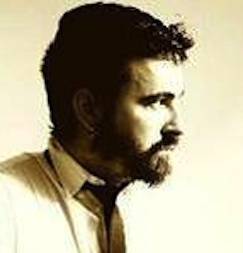K. Yau is from Hong Kong and currently lives in Barcelona. In 2014, she witnessed the series of protests in her city. Now in 2019, Hong Kong is, once again under the world's attention after months of protests and repression. David against Goliath. Voice of Hong Kong in defiance.
In recent weeks we have seen large-scaled protests in Hong Kong. Before entering into details, are the protests related to the Umbrella Movement in 2014?
We are now 3 months into the Anti-extradition bill (AntiELAB) protests. Unlike the Umbrella Movement in 2014, which was a series of sit-in street protests occupying main roads, the AntiELAB protests have evolved into a “be water” movement, taken from the famous quote by Bruce Lee.
Who are the persons or social groups that are called for in the movements mentioned above? (Who are the participants?)
There are no leaders and the movement is certainly not represented by any political parties. Through public discussions on online forum and Telegram chat groups, anyone can contribute their ideas. Online media live stream of protests also engage mass participation in the movement.
Can you explain briefly what “one country, two systems” refers to?
Under “One Country, Two Systems”, Hong Kong is a “special administrative region” (SAR) that has its democratic governance and common law legal system different from Mainland China. Its autonomy should remain unchanged from 1997 for the next 50 years. Keep in mind that Hong Kong has mutual extradition treaties with 20 countries but not with China.
What are the reasons of recent massive protests in Hong Kong?
In 2018, a 19-year-old man travelled with his girlfriend to Taiwan and allegedly killed her. He managed to return to Hong Kong before the Taiwanese authorities could arrest him. Although there is no extraction treaty between the two governments, under the current Fugitive Ordinance, the Hong Kong government can negotiate a one-time arrangement with Taiwan, and handover the suspect for prosecution.
However, the current Chief Executive of Hong Kong, Carrie Lam, rejected the proposal of such arrangement with Taiwan. She pushed forward the extradition bill that, under the Chief Executive discretion, will allow extradition of people in the territory of Hong Kong to any countries that the government does not have a treaty with. And that includes China. It is worth noting that the Chief Executive of Hong Kong is elected by a 1,200 member Election Committee backed by pro-Beijing interest groups and individuals.
Many Hong Kong citizens do not trust the legal system in China, and fear that the bill will be used to silence political dissents. In 2015, five Hong Kong booksellers of material criticizing the Chinese government disappeared. One of them later appeared in China, “confessing” on television to a crime of a car accident he committed a decade ago.
How has the protests developed since?
What has been the response from the government to the protesters’ demands? (Here you can expand the points on political repression, arrests and detention of protesters, etc.)
Although the Chief Executive has announced the withdrawal of the extradition bill, to many citizens, this is "too little, too late". She has refused to make concessions to the other 4 demands:
- Launch an independent commission of inquiry
- Retract the characterization of all protests as riots
- Remove charges made against the arrested
- Implementation of universal suffrage
Since June, the police have been using excessive force, and dehumanizing citizens as "cockroaches" to stir hatred. The police continue to fire expired tear gas and bullets to inflict harm on subdued protesters and even bystanders. A few civilians were shot in the eye, one of them being a first aider. Nearly 1,550 people have been arrested. Under detention, their access to lawyer and medical attention was denied or delayed. Some even claimed they were tortured.
It came as a shock to many people that the police collude with triads to assault civilians. In August, the police attacked passengers inside a metro station and 3 injured persons are now reportedly missing. People have been calling for the Mass Transit Railway company to release the CCTV footage, but it has refused to. This is something that we would never imagine happening in Hong Kong as a civil society. The response from the Hong Kong government that the police have been very restraint with their use of force on violent protesters further escalates the confrontation between both sides.
What do you expect the outcome to be in relation to the series of events?
We do not foresee things to go back to normal in a short period of time. White terror is happening now in businesses and at schools. Officials in the Chinese government have named the protest as “near terrorism”, which further legitimizes the use of force, and possibly a crackdown by the Chinese army before the 70th anniversary of the founding of People’s Republic of China. The US-China trade war is also affecting the power play within the Chinese government and its handling of Hong Kong. The coming two months are very critical. Many citizens can only prepare and adapt themselves to the circumstances. We ask the world to stand with Hong Kong in our fight for democracy.
A wish…
"One country, two systems" will end in 2047. It is not stated what will happen after that. One thing is certain, the erosion of Hong Kong's autonomy is accelerating under Beijing's tightening grip on power in recent years. The crackdown on Tibet and now Xinjiang Uyghurs shadows a grim future for Hong Kong and its people in defiance.
